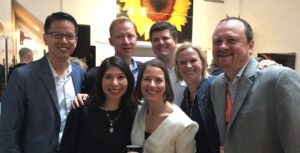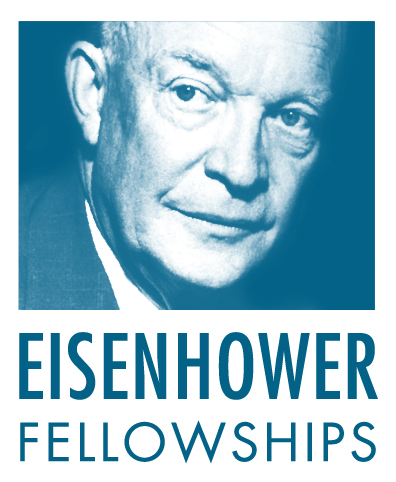United States
Austin, Texas is a city that boasts of booming technology and innovation start-ups, with a growing skyline to match. The transition in the city has been rapid and quite remarkable. However, with the growth has come a painful 37% cost of living increase between 2010 and 2015. As a result, access and equity have become two of the city’s greatest challenges.
 At the center of these issues is Chelsea Collier (USA/Zhi-Xing 2016). Collier connects and engages people from public, private and non-profit sectors to build community and share information about the potential for innovation and technology to make a positive impact – namely through the development of smart cities.
At the center of these issues is Chelsea Collier (USA/Zhi-Xing 2016). Collier connects and engages people from public, private and non-profit sectors to build community and share information about the potential for innovation and technology to make a positive impact – namely through the development of smart cities.
Just what is a smart city? A smart city is a municipality that uses information and connected technologies to increase operational efficiency, share information with the public and improve both the quality of government services and resident welfare. According to Collier, smart cities would experience some of these positive outcomes if they properly invested in “smart” infrastructure: street lights that could dim based on pedestrian traffic or illuminate during an emergency; residents who could access real-time weather forecasts block-by-block that would help them prepare for urban flooding; and emergency responders who could be alerted to a potential hostile situation well before any citizen would have to place a 911 call. This requires enhanced mobile broadband and WiFi capabilities, a platform to connect the Internet of Things (IoT) and a cohesive smart city strategy.
To encourage this smart city conversation, Collier works across three distinct platforms – Digi.City, Smart Cities Connect, and the Impact Hub global network. She created Digi.City as a direct outcome of her Eisenhower Fellowship. The fellowship application itself encouraged her to focus on one particular area where she hoped to make a difference, and she realized that smart cities were at the intersection of everything that she was already committed to—public policy, technology, entrepreneurship, social impact, workforce and economic development.
Being one of the early U.S.-based communication platforms focused on smart cities, Digi.City serves as a space for elected leaders, city officials, community advocates and industry innovators to learn best practices from one another and share resources. Not only is Digi.City a digital platform, but it has hosted dozens of small events from coast to coast providing thought leadership on how different cities can address common challenges such as equity, access to resources, transportation and sustainability by leveraging technology to find and implement solutions.
Another concrete outcome of her Eisenhower Fellowship was working with the Impact Hub Austin team to support the creation of a Workforce Development Accelerator, designed to address the widening gap in the local economy between the “haves” and the “not haves, yet”, a phrase that Collier uses to describe the hope for growth and opportunity in her region. The Accelerator brings together nine diverse teams to focus on how innovation can address access to middle-skill jobs, particularly for disadvantaged populations. This program was inspired by her collaboration with Nate Robinson (USA/Zhi-Xing 2016) through a concept they designed for the EF iLabs, which took place during the EF Future of Work Global Conference in Spain.

Collier’s connection to the EF global family is one that deeply inspires her: “We are in an era of great upheaval and rapid change. In the face of transition and 24-7 news cycles, it is easy to get lost and believe that our world is growing darker. EF’s mission to gather, encourage and lift leaders around the world who are making positive and important progress to create peace, prosperity and equality is more needed than ever. We are inspired by each other and can also share the more quiet work that is happening in our own areas. Seeing and celebrating these efforts is now all of our collective responsibility.”

